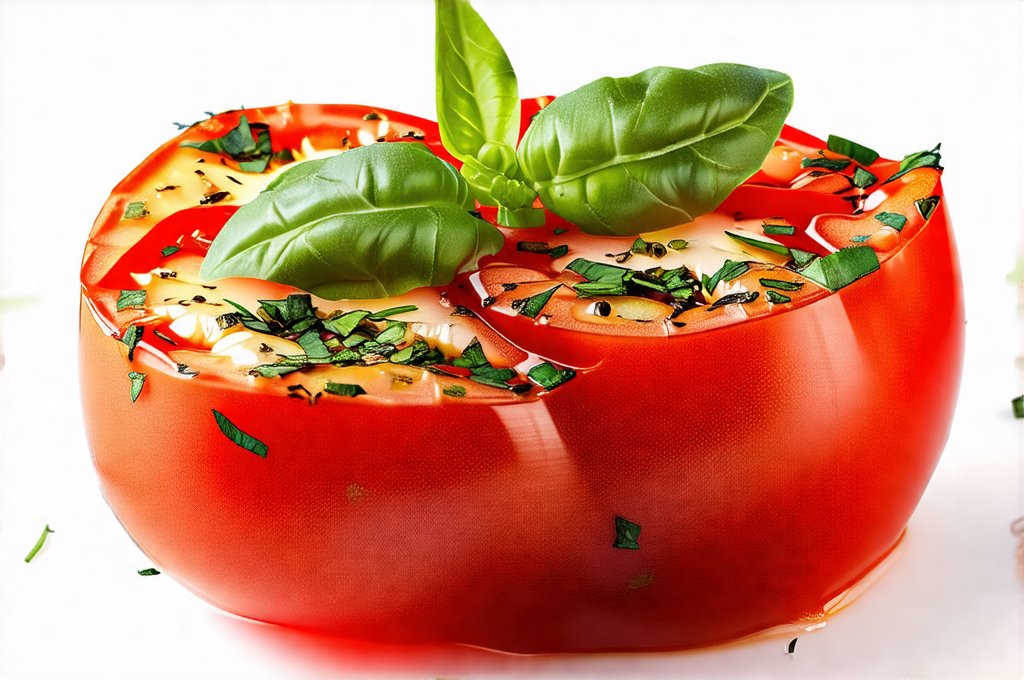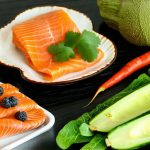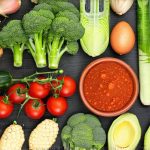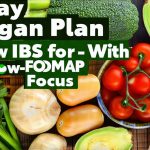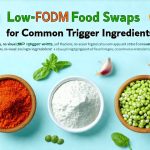Navigating acid reflux while adhering to a vegan lifestyle can present unique challenges, particularly when common soothing strategies rely on ingredients like tomatoes and citrus fruits – frequent culprits for triggering heartburn in sensitive individuals. Many traditional recipes for managing reflux emphasize the alkalizing effects of these fruits, but for those requiring elimination due to sensitivity, finding palatable and effective alternatives is crucial. This article focuses on creating delicious vegan recipes designed specifically without tomatoes or citrus, providing relief and nourishment without exacerbating symptoms. We’ll explore ingredient swaps, cooking methods, and recipe ideas that prioritize gut health and minimize reflux triggers.
Acid reflux isn’t simply about avoiding “acidic” foods; it’s a complex interaction between diet, lifestyle, and individual sensitivities. Vegan diets, rich in fiber and plant-based nutrients, can be incredibly beneficial for digestive health overall. However, certain vegetables (like onions and garlic), spices, and even cooking methods can contribute to reflux if you’re prone to it. The goal isn’t necessarily to eliminate all potential triggers, but rather to identify your personal sensitivities and adapt recipes accordingly. This means focusing on gentle preparation techniques, prioritizing easily digestible ingredients, and understanding how different foods interact with your body. If you are looking for a more structured approach, consider reviewing a gerd meal plan to help guide your choices.
Understanding Vegan Reflux Triggers
While tomatoes and citrus are off-limits for this exploration, it’s important to acknowledge other common vegan reflux triggers. These include: – High-fat foods: Plant-based fats like avocado and nuts are healthy, but excessive amounts can slow digestion and increase acid production. – Spicy foods: Capsaicin in chili peppers can relax the lower esophageal sphincter (LES), allowing stomach acid to flow back up. – Carbonated beverages: The bubbles can expand the stomach and put pressure on the LES. – Caffeine: Found in coffee, tea, and even some plant-based milks, caffeine can also contribute to reflux. – Cruciferous vegetables: Broccoli, cauliflower, and cabbage can sometimes cause gas and bloating, which may exacerbate symptoms. – Mint: Surprisingly, mint can relax the LES, increasing the chance of heartburn. Understanding these triggers allows for informed ingredient choices and recipe modifications. It’s crucial to remember that everyone is different; keeping a food diary can help pinpoint your specific sensitivities. For holiday meals, consider gut-friendly desserts that won’t trigger symptoms.
Another often overlooked aspect of reflux management is portion size. Eating large meals overwhelms the digestive system, increasing the likelihood of acid reflux. Smaller, more frequent meals are generally easier for the body to process and less likely to trigger symptoms. Similarly, eating quickly without proper chewing can also contribute to indigestion. Taking your time to savor each bite allows for better digestion and reduces strain on the esophagus. Finally, consider how you’re preparing your food – steaming or baking is often gentler on the digestive system than frying or sautéing in excessive oil.
Vegan Comfort Food Without the Flare-Ups
Creating satisfying vegan meals without relying on tomatoes or citrus requires creativity but yields delicious results. Focusing on creamy textures and flavorful seasonings can compensate for the missing tanginess. For example, cashew cream is an excellent substitute for tomato-based sauces, offering a rich and decadent base for pasta dishes or curries. Similarly, herbs like basil, oregano, and parsley can add depth of flavor without irritating sensitive stomachs. Utilizing ingredients like sweet potatoes, butternut squash, and carrots provides natural sweetness and vibrant color.
When building your recipes, consider the texture of the food. Smoothies are generally well-tolerated because they’re easily digestible, but chunky salads might be harder on a sensitive system. Pureeing soups or blending vegetables into sauces can also make them easier to digest. Remember that it’s not about deprivation; it’s about finding alternative ways to enjoy your favorite foods without compromising your health and comfort. Experiment with different spices (avoiding excessive heat) and herbs to discover new flavor combinations that work for you. If you struggle with dairy, explore gut-friendly desserts as an alternative.
Soothing Vegan Breakfast Options
- Oatmeal with Pear & Cinnamon: Oatmeal is a fantastic starting point, offering fiber and gentle digestion. Pair it with sliced pear (a low-acid fruit) and a sprinkle of cinnamon for warmth and sweetness. Avoid adding nuts or seeds if they trigger symptoms.
- Creamy Avocado Toast on Gluten-Free Bread: Avocado provides healthy fats and a creamy texture. Spread mashed avocado onto gluten-free toast and season with a pinch of sea salt and black pepper. Gluten-free bread is recommended as some individuals find gluten exacerbates reflux. If you are looking for quick lunch options, consider easy lunches that won’t cause issues.
- Banana & Almond Butter Smoothie (Dairy-Free): Blend frozen banana, almond butter, dairy-free milk (oat or rice are good options), and a touch of maple syrup for a quick and satisfying breakfast.
Gentle Vegan Lunch Ideas
- Sweet Potato & Coconut Curry: Diced sweet potato simmered in coconut milk with mild curry spices (turmeric, cumin, coriander) creates a comforting and easily digestible meal. Serve with steamed rice or quinoa.
- Creamy Butternut Squash Soup: Roasted butternut squash blended with vegetable broth and cashew cream offers a velvety texture and rich flavor. Season with nutmeg and a touch of maple syrup.
- Quinoa Salad with Cucumber & Dill: Quinoa is a complete protein source and gentle on the stomach. Combine cooked quinoa with diced cucumber, fresh dill, and a light vinaigrette made from olive oil and apple cider vinegar (use sparingly).
Dinner Solutions for Peaceful Nights
- Mashed Cauliflower with Roasted Vegetables: Mashed cauliflower provides a creamy base similar to mashed potatoes without the potential digestive issues. Serve alongside roasted carrots, zucchini, and bell peppers seasoned with herbs.
- Vegan Shepherd’s Pie with Sweet Potato Topping: A hearty and comforting dish featuring lentils or mushrooms as the filling and topped with mashed sweet potato instead of traditional potato mash.
- Zucchini Noodles (Zoodles) with Pesto (Nut-Free): Zucchini noodles are a light and refreshing alternative to pasta. Toss them with a nut-free pesto made from basil, olive oil, garlic, and nutritional yeast. For a relaxing evening, consider these dinner recipes that won’t cause reflux at night.
It’s crucial to remember that managing acid reflux is an ongoing process of self-discovery. What works for one person may not work for another. Listen to your body, keep a food diary, and don’t be afraid to experiment with different recipes and ingredients until you find what suits you best. Prioritizing gentle preparation techniques, mindful eating habits, and ingredient awareness will empower you to enjoy delicious vegan meals without the worry of heartburn or discomfort. If reflux is impacting seniors, meal prep can make things easier.

